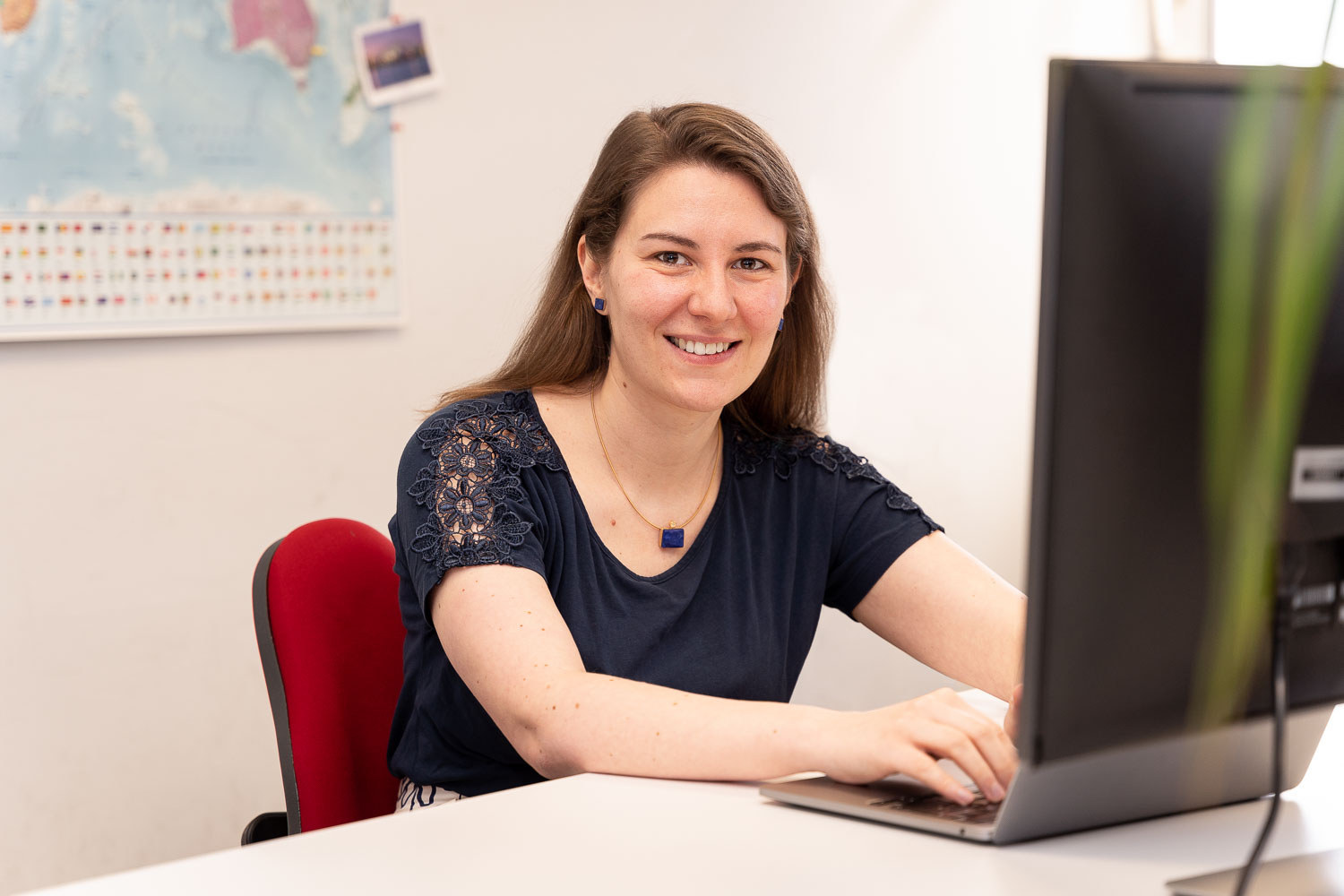Artificial intelligence in teaching Institute of Business Information Systems researches "Learning Companions"
Since the company “ChatGPT” launched its technology at the end of November 2022, chatbots based on artificial intelligence have been on everyone’s lips. Is this the future of search on the internet? If the big tech companies have their way, yes. Microsoft is working on integrating “OpenAI” into a new version of its search engine Bing, market leader Google is tinkering with its own artificial intelligence called “Bard”. But research is also being conducted at Technische Universität Braunschweig on what the future could look like with AI, especially in teaching.
“There is a lot of uncertainty right now,” observes Dr. Ricarda Schlimbach. The research associate at the Institute of Business Information Systems is conducting design-oriented research on the topic of “Learning Companions”, i.e. virtual companions for learning. Artificial intelligence in itself is not evil, Schlimbach emphasises: “As humans, we are responsible for whether an AI is good or evil.” Nevertheless, we cannot completely switch off stereotypes towards technology.
EWI-Bot for deepening lecture contents
For the lecture “Einführung in die Wirtschaftsinformatik” (EWI) (Introduction to Business Information Systems), Master’s students have developed their own Learning Companion, the EWI-Bot, based on the Institute’s scientific results. It motivates learning and can output content from the lecture such as presentation slides, quizzes or exercises in a targeted manner in order to provide students with assistance, particularly in deepening lecture contents. However, it is still only used by less than ten percent of the students, Ricarda Schlimbach regrets: “We were very surprised because students indicated fears such as addiction potential or giving up interaction in real life in the initial phase to survey requirements for StudyBuddy. Where exactly the shoe pinches, we will now find out in more detail.”

Dr. Ricarda Schlimbach conducts research at the Institute of Business Information Systems in the field of Pedagogical Conversational Agents and Chatbot-Companions in learning contexts. Photo credit: Markus Hörster/TU Braunschweig
The EWI bot is not comparable to a commercial, profit-oriented service like ChatGPT, which is based on the powerful artificial intelligence of “OpenAI”. But Schlimbach sees the future in such an approach. A mixture of a technology like ChatGPT, which provides users with information, and a “Virtual Companion” like “Replika”, with which users build up a certain relationship and thus also generate social value. A reward system is also conceivable, with which additional functions can be unlocked. This should provide additional motivation – and the Institute of Business Information Systems is researching exactly how.
More project- and competence-oriented assessed coursework
In the Corona era, universities increasingly relied on online exams. With the availability of tools such as ChatGPT, the question now arises as to what assessed coursework should look like in the future if an AI can solve the previous tasks for the students within seconds. “I could imagine that in the future there will be more project- and competence-oriented assessed coursework,” says Ricarda Schlimbach. We would have to learn to collaborate with artificial intelligence. One thing is certain: the technical maturity of AI is overestimated, the responsibility of the users underestimated. Pupils and students need to learn how to use this new technology at an early stage in order not to be left behind.
How does the university management deal with ChatGPT & Co.?
The importance of ChatGPT and related tools, especially for studies and teaching, but also in the areas of transfer, digitalisation and administration, is currently being discussed in the TU Braunschweig Executive Board and in other university committees, says Prof. Knut Baumann, Vice President for Academic and Student Affairs. There is also intensive exchange with other universities within the TU9 and the German Rectors’ Conference (HRK) as well as with international institutions such as the European University Association (EUA).
According to Baumann, the aim is not to ban AI tools, but to integrate them into the work in the medium term: “We expect users to indicate such tools as aids when they have been used for text production, in accordance with our principles of good scientific practice. Regardless of this, we are intensively analysing how AI tools change writing and examination processes and, in this context, are also thinking about new work and examination formats that take into account the changed possibilities of AI-generated texts”.
